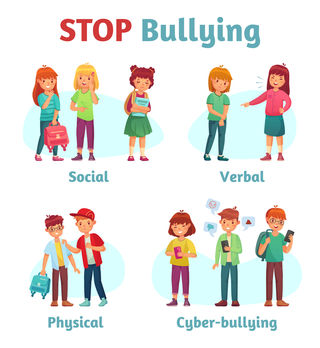Bullying
Striking Back Against Homophobia
A viral video of a gay student confronting a bully raises important questions.
Posted December 2, 2019
In November 2019, a video of a gay high school student in LaPorte, Indiana, attacking a homophobic boy who had been bullying him went viral on Twitter garnering more than a million hits in a single day. The boy, Jordan Steffy, has since appeared on television and has been the subject of numerous articles and interviews.
I’d call this a “teachable moment.”
Obviously, the video tapped into a deep vein of pain among LGBTQ youth and adults who have experienced first-hand this kind of ceaseless bullying and who felt moved by Steffy standing in for their long-suppressed rage. One Twitter user said: “… this baby slapped him with the hands of Harvey Milk [the gay man elected to the San Francisco Board of Supervisors who was assassinated in 1968] and every ancestor at Stonewall [the 1969 violent riots in Greenwich Village after police brutally raided a gay bar there]….”

In interviews, Steffy said he’d been bullied since 2nd grade, long before he came out as gay in 7th grade, and he’d finally reached a breaking point when this particular bully posted a photo of him online and said how he hated gays. Steffy then confronted the bully who taunted, “What are you going to do about it, f**got?”
According to an annual survey by the organization GLSEN, more than 70 percent of LGBTQ students report being verbally harassed in school, while nearly 30 percent report facing physical harassment. This brings up some important ethical and practical questions that we as a society need to address:
How much does a kid have to suffer before a responsible adult steps in and does something? The video makes it clear that there was an adult in the classroom, presumably a teacher, who did and said nothing until Steffy began throwing serious punches. Considering how widespread this kind of bullying is, how is it possible that there are not strongly enforced policies in all schools about teachers stopping or even reporting bullying? Studies show that LGBTQ kids who suffer this kind of ongoing harassment are living with depression, isolation, and suicidal ideation. Should they be made to fight for themselves? Why is this not treated as a national disgrace or public health emergency?
How did we get to the place where oppressors can claim they are victims?
In 1998, a young, gay student at the University of Wyoming named Matthew Shephard was beaten, tortured, and left to die near Laramie. One of Shepard’s assailants claimed that Shepard had come on to him sexually, and the assailant felt so threatened that he justifiably flew into a rage. It was called the “gay panic defense.” It was not the last time such a defense has been used by violent homophobes. Is this justifiable? In the case of Shepard’s murder, the jury concluded it wasn’t and the assailants went to prison for life, but this is not always the outcome.
If this “he asked for it” attitude is acceptable, then isn’t it reasonable that when a man makes an unwanted sexual advance comment toward a woman, she has the right to physically attack him? Wouldn’t our hospitals be full of injured men if this was justifiable?
Oftentimes nothing done is worse than the actual abuse. We are often told that “violence is not the answer.” But when there is incessant verbal or physical abuse of LGBTQ (or other) students and no support from adults, at what point does the student have the right to aggressively respond, to fight back? Steffy was suspended from his school for fighting for a longer time than the bully, and his mother says she will now homeschool him. In one interview he said tearfully that he is going to miss his friends in school. How should schools respond to events like this? Are they responsible for keeping all kids in attendance safe? Should they be holding assemblies, maybe, to address issues like this with the kids?
This situation brings back painful memories for me of being bullied throughout my school days, even before I knew or acknowledged to myself that I was gay. I felt so disempowered, isolated, laughed at, and talked about. And I had nowhere to turn. Can you think of times in your own life when you, for whatever reasons, were bullied? How did it affect your social life, your sense of worth, even your future career? The deadly school shootings we’ve experienced in recent years have made us wonder, if only briefly, whether bullying is behind these acts of rage. What do you think?
I think it speaks well of Steffy that after the altercation, when so many people expressed anger at the bully’s actions, Steffy specifically asked that no one attack his bully as a result. This showed an admirable level of maturity and understanding of the consequences of his actions.
Other stories out there give me hope that some of our young people are willing to stand up against bullying and bigotry. One of my recent favorites comes out of an elementary school in Utah. Just before Thanksgiving, a substitute teacher at Deerfield Elementary in Cedar Hills asked fifth graders in her class what they were grateful for. One boy answered, “I’m thankful that I’m finally going to be adopted by my two dads,” to which the teacher said, “Why on earth would you be happy about that? That’s nothing to be grateful for.” Then she gave the kids a 10-minute lecture about how homosexuality is wrong and how two men living together is a sin.
The boy sat there and took this abuse because he had already been through two rejected adoption attempts and didn’t want to bring unwanted attention to himself. But after the class three brave girls from the class marched into the principal’s office and reported what had happened. The teacher was promptly escorted out of Deerfield and school officials said that she would never teach there again.
It made me want to stand up and cheer.
And, in a perfect example of a bullying oppressor blaming the victim for her actions, the teacher unloaded on the boy. “She also tried to blame our son and told him that it was his fault that she went off,” reported one of the boy’s fathers, a professional dancer on Dancing with the Stars.
I’d like to encourage my readers to offer their comments or experiences on this or other similar topics. In some areas of the nation, schools have made anti-bullying an important part of their school policies. Unfortunately, there remains largely a culture of silence around what LGBTQ students and other targets of bullying are forced to endure, leading to a reluctance to speak out about it. But this feels to me like a moment in which we can begin a wider conversation.
It is important for the well-being and mental health of our young people.




